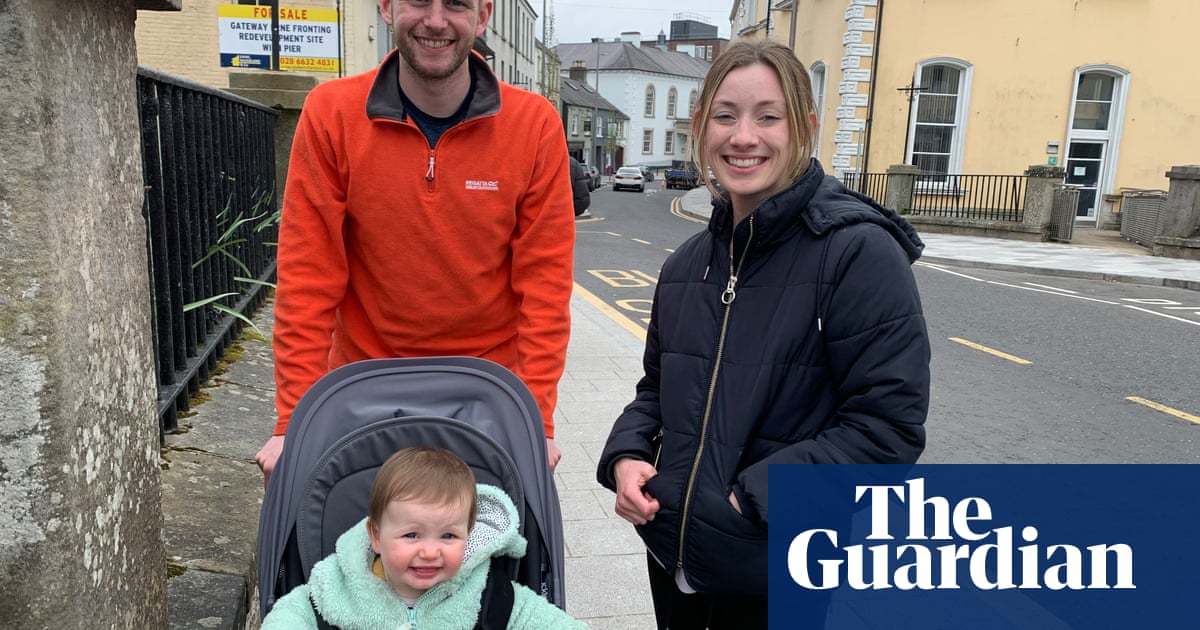‘It’s a bit of a circus’: the Northern Irish voters tired of polarised politics - 3 minutes read

Mark and Grace Hoy have returned from England to Enniskillen and are pondering their vote. Photograph: Lisa O'Carroll Northern Ireland ‘It’s a bit of a circus’: the Northern Irish voters tired of polarised politics Young voters in Enniskillen show dismay at Sinn Féin and the DUP in run-up to this week’s elections
The Northern Ireland protocol does not come up once, but what does surface repeatedly among 18- to 34-year-olds asked open questions about their voting intentions is the frustration with the framing of this election, like many before it, as a vote on the constitutional question of whether Northern Ireland should remain part of the UK or unify with Ireland.
“I’m a unionist, but I’m not going to be influenced by that protocol stuff. What’s important for me is the health stuff. You have to stand up for women’s issues, that’s important,” she adds, shorthand for why she is not voting for the DUP.
Away from the headline battles between Sinn Féin and the DUP and the turmoil within unionism, the question for post-conflict Northern Ireland is whether constitutional politics will ever be remote enough to be in the rear-view mirror.
The Alliance party will be the sanctuary for many votes eschewing the constitutional political positioning of the main parties, with some predicting they could add between three and five seats to their existing eight.
“People say they’re fed up, say they want it all to stop. They don’t want the election to be about the legacy, they want the end to arguing, they want a different assembly, but the thing about it is, most of the people who feel that way is they don’t vote.”
However, he believes the proportional representation system could deliver some results for those in the middle. “What we are seeing is there is a growth for those non-constitutional parties, but where they’re very strong is in second preferences. That could theoretically be a gamechanger,” he says.
Launching the Alliance party’s manifesto last week, Naomi Long, its leader, expressed frustration that those who support the non-aligned parties do not have the same voice as the unionists and nationalists because of the consociational system set up for post-conflict powersharing.
“About 15% of MLAs currently are non-aligned in the assembly, yet we still count for less in votes on key issues. We cannot say that our community are all equal if within the heart of the institutions which govern this place there is inequality and disrespect for people’s rights.
Source: The Guardian
Powered by NewsAPI.org